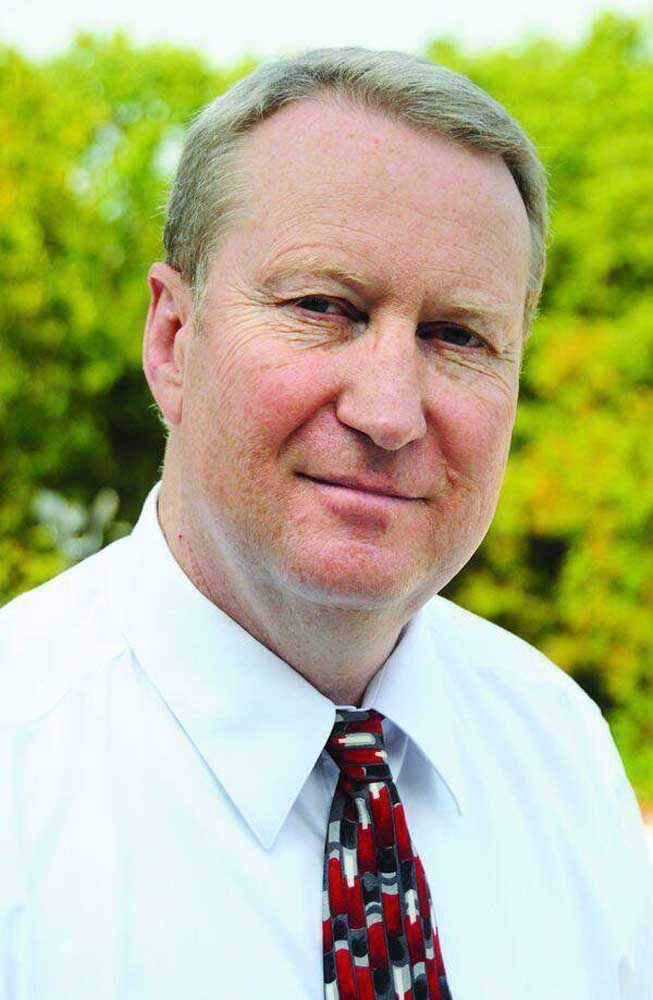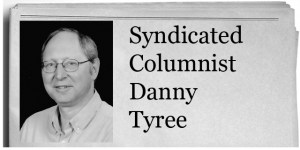Mark Millican: Unlikely trio created Christmas gem
Published 8:00 am Wednesday, December 11, 2024

- Mark Millican
What do a French wine seller, a poor Parisian musician and a liberal American preacher have in common? Amazingly, yet without concertedness, they created the moving Christmas hymn we know as “O Holy Night.”
David Wollen, host of the “Haven Today” radio broadcast on nonprofit 88.9 FM (at the ungodly hour of 5:30 a.m.), explored the origins of the beloved song last week with Robert Morgan, author of the book about Christmas carol origins, “Come Let Us Adore Him.”
Trending
“It was written in French — it’s a French carol — in 1847 by a French wine merchant named Placide Cappeau (shah-PO), who was also the mayor of a little town in the south of France,” Morgan began. “We don’t know very much about him except that he sold wine, served as mayor and wrote poems on the side.”
Later, a Parisian musician named Adolphe Charles Adam came upon Cappeau’s poem about a special night and set the lyrics to music. His father was a concert pianist, and trained young Adophe from infancy in music and piano.
“(Adolphe) wrote a lot of operas, but then he made a lot of bad decisions and lost all his savings, and was just about broke when he found this poem and wrote the music for it,” shared Morgan.
The piece crossed the Atlantic to America when John Dwight, the son of Timothy Dwight of Yale University, “discovered this particular (song) was called ‘Christian Midnight’ in French, but he changed the name to ‘O Holy Night.’ So he translated it into English and made it popular,” Morgan said.
John Dwight graduated from both Harvard and Cambridge and became a Unitarian minister. However, his pastoring stint was neither happy nor fulfilling, and he eventually joined a commune. Still, his musical roots remained solid and he became a music critic who also wrote and edited a journal of music.
“So he really became America’s first music critic, and was known as the one who popularized the song in America,” noted Morgan. “‘O Holy Night’ came from a wine merchant, a penniless Parisian musician and a liberal clergyman. These three came together to give us one of the holiest hymns we ever sing on Christmas.”
Trending
Wollen interjected, “These lyrics are some of the most profound … What do you see in these lyrics that we sing about?”
“One of the things that makes this song so powerful is the music,” replied Morgan, “(and) the words tell the Christmas story … he gets more theological (as the verses go on):
‘Long lay the world, in sin and error pining,
‘Till he appeared and the soul felt its worth.
‘A thrill of hope — the weary world rejoices,
‘For yonder breaks a new and glorious morn!
‘Fall on your knees! O hear the angel voices!
‘Oh, night divine! Oh, night when Christ was born!’
“All of this paints the picture of Christmas, and then the last verse kinda brings it up to date for us:
‘Truly he taught us to love one another;
‘His law is love and his gospel is peace.
‘Chains shall he break, for the slave is our brother,
‘And in his name all oppression shall cease … ’”
Morgan believes the “power of this particular song (is) the way the music rises up to announce with great majesty ‘Christ is the Lord, fall on your knees.’”
Added Wollen, “What I love about it is that it wonderfully counteracts the way that Christmas often is sentimentalized in our culture. (We act as if) it’s really about the season and pop media, it’s about all these other things like values to your kids and it’s better to give and these sorts of things. This song says ‘No, fall on your knees and worship.’ That’s what we need.”
Morgan referenced the “operatic feel” of the hymn: “You get a sense of that operatic power that swells, and the voice goes out with a message at just the right time. It shows us that the Lord uses all kinds of people and circumstances to do his work. Here you have a wine merchant, no doubt Catholic, (who was also) a politician who wrote poetry … a Parisian musician who was down on his luck and a liberal American clergyman who wanted to be a music critic. And somehow it all came together to give us this great song. You wouldn’t think the Lord would work that way, but he has a wonderful way of working with people who may not be as perfect as we would want them to be.”
Charles Morris, a past host of the program who was listening in on the interview, chuckled, “Obviously, our God has a sense of humor, too.”
“Yes, and we’re all among that category!” Morgan exclaimed.
As I’ve mentioned in this space before, “O Holy Night” became my favorite Christmas song when I saw it performed by Aaron Neville and the Boston Pops Orchestra on a PBS special years ago. Try as I might — and confession is made here I’m not an online search whiz — a recording of this concert has never been found. I ordered a CD of Neville’s Christmas songs and it was on there, but it just wasn’t the same.
Yet every time I hear the beguiling beginning strains of “O Holy Night” it reminds me of that moment one evening when the words came alive during a singular performance. And isn’t that how music can powerfully affect us at a space in time? It’s like a Bible verse you’ve possibly read hundreds of times, but then when you’re going through a difficult and trying situation or even a set of unwanted circumstances, you read the words anew and they leap off the page and into your heart. Music, especially with meaningful lyrics and an inspired melody, can elicit the same unexpected yet restorative response.
May you have one of those moments this Christmas.
Mark Millican is a former staff writer for the Dalton Daily Citizen.





